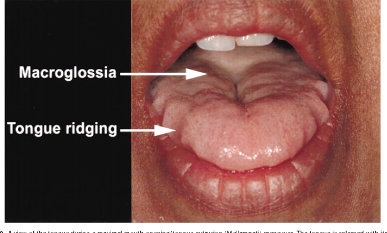Sleep apnea is a potentially serious sleep disorder in which breathing constantly stops and starts. If you snore loudly and feel tired after a full night’s sleep, you might have sleep apnea.
In this issue, we will discuss the most common sleep apnea, Obstructive Sleep Apnea (OSA).
OSA is a chronic condition causing disturbances in sleep for three or more nights a week. It occurs in males twice as often as in females. You could be at risk for sleep apnea. Sleep apnea can affect anyone at any age, even children.
Risk factors for sleep apnea include the following:
- Overweight males
- Adults over the age of 40
- Large neck size (17 inches or greater in men and 16 inches or greater in women)
- Large tonsils, large tongue or a small jaw bone
- Family history of sleep apnea
- Nasal obstruction due to a deviated septum, allergies or sinus problems
A person suffering from sleep apnea experiences airway blockage or narrowing during sleep simply because the throat muscles tend to relax more than normal.
If you suffer from obstructive sleep apnea, this can contribute to some of the following more serious health problems:
- High blood pressure
- Stroke
- Heart failure and heart attacks
- Diabetes
- Premature Dementia and Depression
- Worsening of Attention Deficit Hyperactivity Disorder (ADHD)
- Headaches
Also, untreated sleep apnea is associated with poor performance in everyday activities, such as work, school, motor vehicle crashes and academic underachievement in children and adolescents.
Sleep apnea is a slow process. It usually begins with a mild to moderate snore and eventually a severe snore and finally to sleep apnea. What we do know is that most people are unaware that they suffer from sleep apnea.
A close family member suffered from poor sleep patterns, irritability and constant tiredness in the mornings. They became increasingly forgetful and their speech became incoherent. What was not realized is that their brain was being deprived of the required amount of oxygen. In essence, this relative was exhibiting signs of premature dementia. After a visit to a Physician, they were referred for a sleep test. A sleep-time test monitors your sleep pattern, heart rate, oxygen levels and breathing. After reading the results the medical doctor was able to determine the extent of the sleep apnea and available options for treatment.
We are fortunate in The Bahamas to have competent sleep physicians available. A sleep physician can arrange a sleep laboratory to evaluate your sleep patterns. Scientific studies prove the importance of a sleep lab to determine persons who are suffering from sleep apnea. Once Obstructive Sleep Apnea diagnosis is made, you have a choice as to how you would like to approach treatment.
Treatment options for obstructive sleep apnea include:
- Continuous Positive Airflow Pressure Machine (CPAP)
- Other breathing devices
- Dental appliances
- Dental Laser treatment
Obstructive Sleep Apnea is more common than we think. Suffocating the brain from essential oxygen can be dangerous. Therefore, early treatment is critical for a life-changing remedy.
Dr. Kendal V. O. Major is Founder and CEO of Center for Specialized Dentistry which is a comprehensive family dental practice operating in Nassau and Freeport. He is the first Bahamian Specialist in gum diseases and dental implants since 1989. He also is a certified Fast braces provider. His practice is located at 89 Collins Avenue, Nassau at (242)325-5165 or [email protected].

Relaxation of throat and tonsillar tissues causing obstruction

Enlarged tongue (Macroglossia) makes one susceptible to obstructive sleep apnea






Need more information on sleep apnea in females and treatment. Thank you